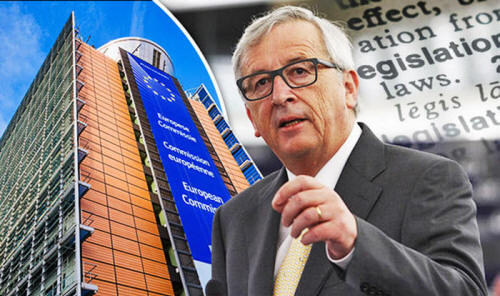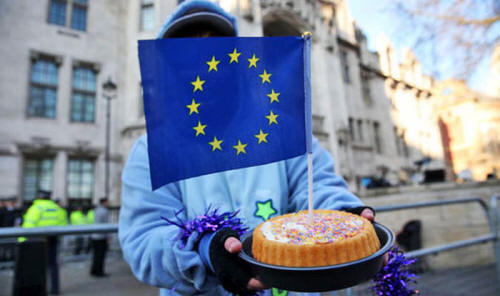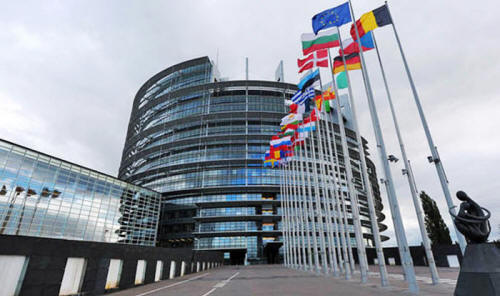|

by Nick Gutteridge
January 24,
2017
from
Express Website

Eurocrats are cooking up more
and
more laws in secret, a report shows
EUROCRATS are now making
record numbers of EU laws in
secret
as the bloc continues to battle
a major popularity crisis
amongst voters
across the continent,
explosive analysis shows today.
Brussels is shutting up shop and deliberating on an ever greater
number of intrusive regulations away from the harsh light of public
scrutiny, minimizing opportunities for criticism and opposition.
Dynamite figures uncovered by an
EUobserver investigation show that
secret lawmaking is now at its joint highest level ever in the
history of the bloc, raising serious questions over the health of
European democracy.
Campaigners and politicians today described the development as
"astonishing" and said they were "alarmed" by the number of sweeping
regulations being cooked up behind closed doors.
But the EU Parliament denied that decision making had become any
less transparent, with a spokesman saying:
"There is nothing
secretive about EU law making."
The issue revolves around
the numbers of Brussels bills, originating from the unelected EU
Commission, which are being rushed through without lengthy debates
in the EU Parliament.
All EU laws are drawn up by Jean-Claude Juncker's army of
technocrats and are sent out to to the parliament, made up of 750
elected MEPs, and the EU Council, comprised of ministers and heads
of government.

An EU flag - AFP
Democracy campaigners have
expressed concern about the development

The EU Parliament - GETTY
No laws made it past
the first reading process last year
Typically bills used to go through two separate reading processes in
the parliament, which allowed them to be publicly debated and
challenged and gave the Council the opportunity to adopt its own
stance.
But the figures show that not a single law passed in 2016 went to a
second reading, compared to more than half which made that
legislative stage back in 2004.
The change is significant because typically bills passed at the
first reading by the parliament are automatically ratified by the
Council without a debate, meaning elected national politicians do
not get a say on them.
It has also vastly increased the use of the controversial
trilogue system of decision making,
in which representatives from the three institutions cook up
compromises on key laws behind closed doors.
Statistics show that 144 trilogue meetings took place last year
whilst a whopping 230 were held in 2015.
Former Tory MEP Malcolm Harbour told EUobserver:
"There have been
quite a number of members of the European Parliament, including
myself, who are rather alarmed by this trend."
And Jorgo Riss,
from Greenpeace, told the website:
"We have the
short-cutting of the democratic process, almost going to an
extreme now.
"If you are not pursuing public interest, if you are pursuing
more private interest, then the system works I guess much better
for you."
However, in a blog post
the EU Parliament's UK Information Office said that whilst more laws
are being passed at the first reading stage,
"this does not mean
that the process is a secret."
It stated that all bills,
"require considerable
debate in both the European Parliament and the Council",
...and added that all
sessions are streamed online with the accompanying documents being
made available on the EU website.
The revelations come after a row erupted over changes to the EU
decision making process which europhiles claimed will make it
more transparent, but euro-skeptics blasted as a further attempt to
make lawmaking secret.
The reforms, proposed by Labour MEP Richard Corbett, could
lead to an increase in the number of decisions being made by
trilogue, and were blasted as "explosively dangerous" by
euro-skeptics.
But the British politician hit back and insisted they will make the
EU "more transparent and efficient" and will increase the EU
parliament's oversight of the secretive process.
|




